
views
Learning the Basics

Learn essential vocabulary. The very first step to learning any new language is practicing some key words. This you will introduce you to Serbian pronunciation, and give you the ability to make basic small talk in Serbian. Here are some key words to start with: Hello - Zdravo. Goodbye - Dovidjenja. Yes - Da. No - Ne. Thank you - Hvala. Sorry - Pardon. Please - Molim.

Learn the Serbian alphabet. The Serbian alphabet is quite different from the English one. Familiarize yourself with this alphabet and the way each letter is pronounced. Once you have a grasp on the alphabet, you will be able to sound out new Serbian words. Some letters, such as Č,Š,Ć,Ž,Đ,Lj, may be tricky for you. The letter Č is similar to CH (chair, chain, chocolate). The letter Š is similar to SH (shampoo, shower, shop).
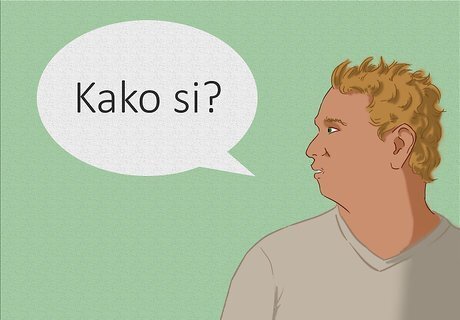
Keep it relevant. After you have a handle on some key words, begin learning relevant phrases and sentences. In the beginning, limit your study to phrases that you will actually need to use in conversation. How are you? - Kako ste? What is your name? - Kako se zoveš? How old are you? - Koliko imaš godina? Where are you from? - Odakle si? I am from _____ - Ja sam iz _____. Good morning. - Dobro jutro. Good afternoon. - Dobar dan. Good evening. - Dobro veče.
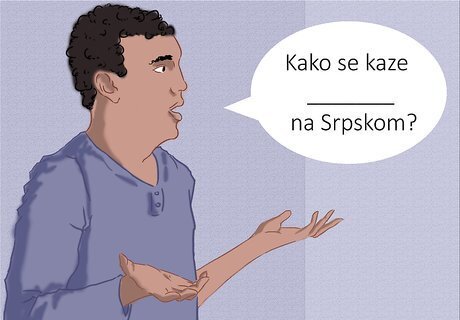
Learn the phrase for “How do you say_____ in Serbian?” This is a crucial phrase to learn when you begin practicing Serbian. Once you have a handle on this phrase, you can ask a Serbian speaker how to say any new word or expression you’d like to learn. Here is this phrase in Serbian - Kako se kaže ________ na srpskom?

Be patient with yourself. Serbian is a notoriously difficult language. If English is your first language, Serbian is going to be completely different. You will have more success in learning this language if you are patient with yourself from the beginning. Keep trying, keep practicing, and in time, your knowledge of the Serbian language will grow.
Practicing the Language
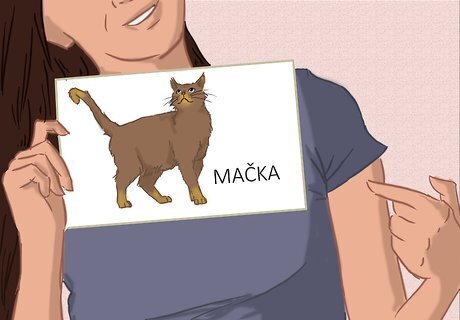
Make flashcards. In order to build up a Serbian vocabulary, you need to do more than merely encounter Serbian words. You will need to memorize them. Create flashcards of common words. Practice with your flashcards until you have a strong grasp on the terms. Begin with 10 common words. It may help to include a phonetic pronunciation guide for yourself on each card.

Think like a baby. Babies are excellent at learning new languages because they are not too embarrassed to babble and verbalize new sounds. You can also sharpen your basic Serbian skills by using the same resources a baby would use. Practice short, simple words. Look for baby books or baby toys that help Serbian kids learn to speak. Don’t worry about perfect pronunciation or grammar. These skills will come in time.

Practice with someone. The absolute best way to learn Serbian is to speak with someone who speaks the language. Ideally, your conversation partner will be a native speaker, but anybody with a decent grasp on the language will do. Practicing out loud will reinforce the skills you have already learned, while encouraging you to build new sentences out of the words you know.

Talk to someone via the internet. If you can’t find an in-person partner to practice Serbian with, find someone online. You can use foreign language forums, or social media to find friends who speak Serbian. Then use a video chatting platform to meet up virtually.

Talk to yourself. If you still can’t find anybody to talk to, you can always speak to yourself! Speaking out loud has a profound effect on your memory, so practice your Serbian any time you can. Speaking to yourself can keep Serbian words and phrases fresh in your mind, and this practice can build up your skills for the next time you can speak with someone else.

Keep a journal. Start a notebook for your new language journey. This is an excellent place to record new vocabulary words and phrases, and to keep track of your progress. But most importantly, this is a great place to practice your growing Serbian language skills. By writing in Serbian by hand, you will be accessing a different part of the brain, thereby solidifying your understanding and memorization of the Serbian language.
Encountering the Language in New Ways

Watch Television in Serbian. Watching television or movies in Serbian can be a good way to encounter new terms and familiarize yourself with the sound of the Serbian language. Look for movies with English subtitles so that you can passively absorb new Serbian vocabulary.

Read. Try to get your hands on Serbian books or a Serbian newspaper. Just as with television, this will expose you to a whole host of new words and phrases. But unlike watching TV, reading is not passive. By trying to read in Serbian you will engage deeply with this new language and fortify your skills.
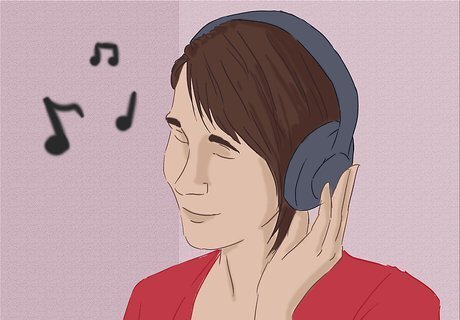
Listen to Serbian music with lyrics. Another more passive form of language exposure is to listen to Serbian music with lyrics. Listening to particularly catchy or repetitive songs can help you to memorize words or phrases. Seek out popular Serbian music or even songs intended for kids.

Find an immersive environment. The most effective way to learn a new language is total immersion. An immersive Serbian environment will force you to leave English behind for a little while and rely on what Serbian you know. Are there any Serbian clubs or meet-ups in your area? (College campuses can be good places for such things). A Serbian restaurant can also suffice.

Watch people talk. Speaking Serbian requires you to use your tongue and mouth in different ways than you may be used to. When someone speaks to you in Serbian, pay close attention to their mouth. This will give you a visual sense of how to pronounce new words.














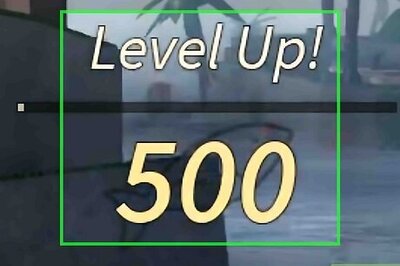



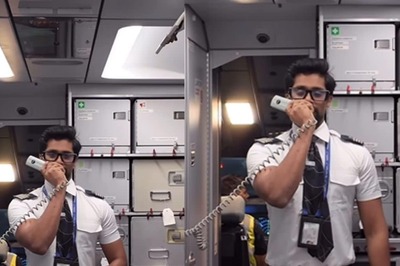
Comments
0 comment